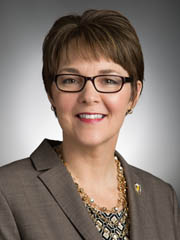This video features Dr. Jennifer A. Ziegler’s research into the history, development, and implementation of the 10 Standard Firefighting Orders. After the 1956 Inaja Fire killed 11 firefighters near Julian, California a task force reviewed the records of 16 tragedy fires that occurred from 1937 to 1956, concentrating on the 5 fires that killed 10 or more people. They developed a list of what those fatal fires had in common, calling them “sins of omission which our trained men recognize as sins” — things that the firefighters otherwise knew what to do, but simply forgot in a critical situation.

The task force also looked at near misses that had a positive outcome. They decided those firefighters were successful because the “cool heads”, as they called them in 1957, sized up the changes in fire behavior in time to get the men to safety.
In the video Dr. Ziegler also talks about how beginning in the 1990s investigation teams studying fatalities sometimes used the Orders as a checklist.
Ms. Ziegler is known to many wildland firefighters through her research and conference presentations on communications in the management and practice of safety in wildland firefighting. Some of her findings were part of the 2009 standardized fire refresher training.
She has taught at Baylor, Purdue, Notre Dame, and Valparaiso University where she is now the Dean of the Graduate School and Continuing Education. Below is an excerpt from her profile at Valparaiso:
…In addition to her passion for graduate education, Dean Ziegler is passionate about conducting research in organizational communication that makes a difference. Dean Ziegler was first exposed to the culture of wildland firefighting while a graduate student at the University of Colorado. Throughout the last decade, Dean Ziegler’s research has focused solely on communication in the management and practice of safety in wildland firefighting. Her work at the intersection of rhetoric, culture, and communication theory has helped the fire community understand the history and cultural legacy of bureaucratic rules in accident investigations; as a result, she is frequently invited to speak at fire conferences, workshops, and refreshers.
She has also consulted with agencies on high-profile incidents and related initiatives, helping to illuminate cultural and organizational factors that may contribute to unwanted outcomes. Her recent work centers on how “talk about talk” (metadiscourse) shapes the way people interact during intentional culture change. Soon she will join an interdisciplinary team of scholars (including two of her former graduate students) on a Joint Fire Science funded grant to study risk perception and collective sense-making through radio communications on the fireline.
